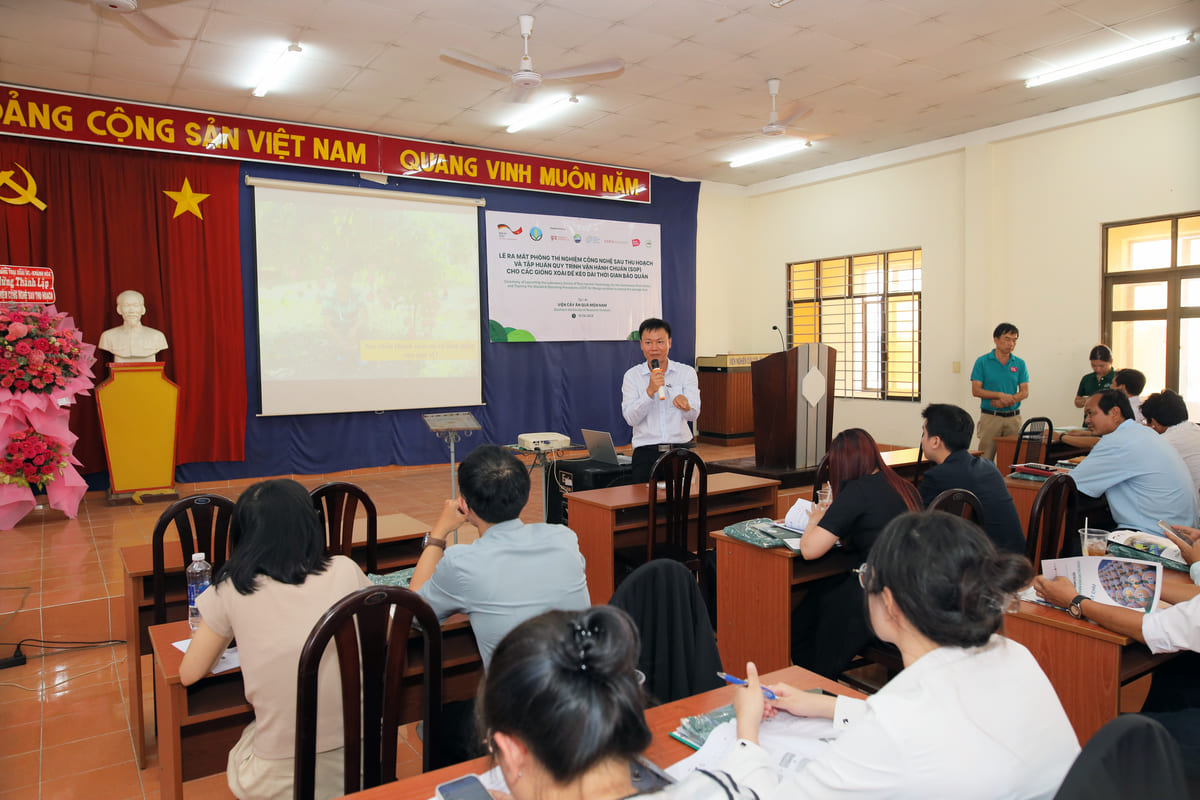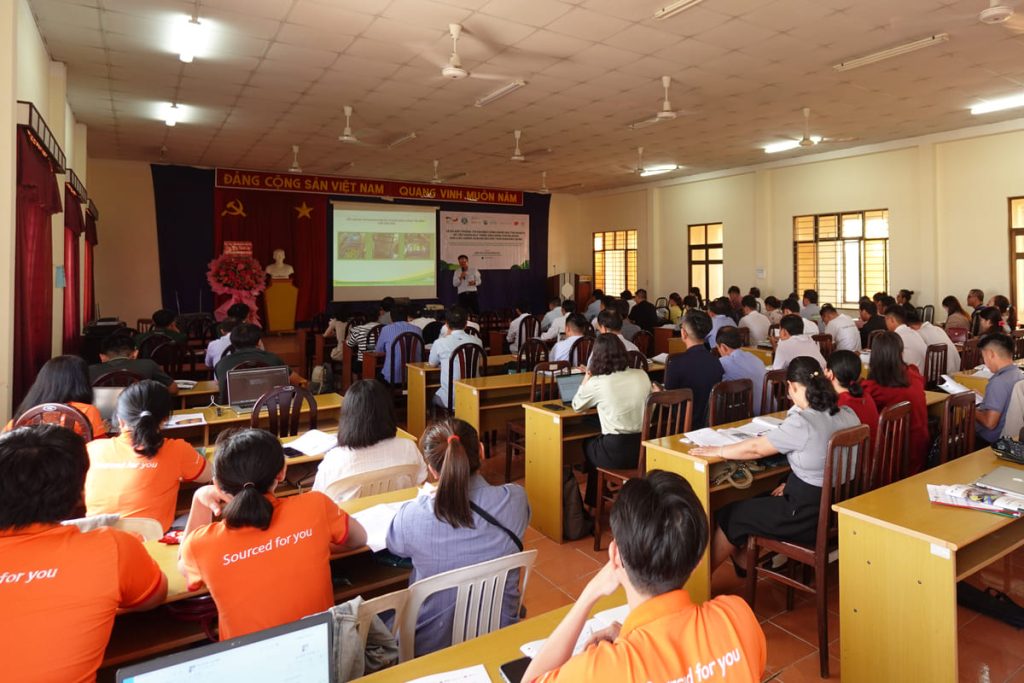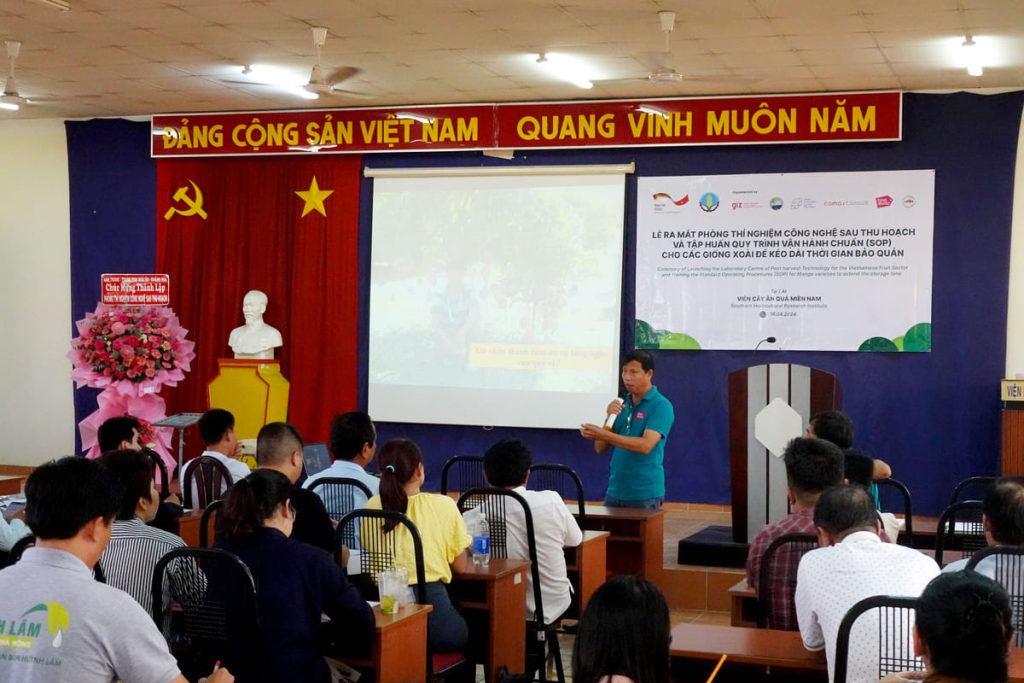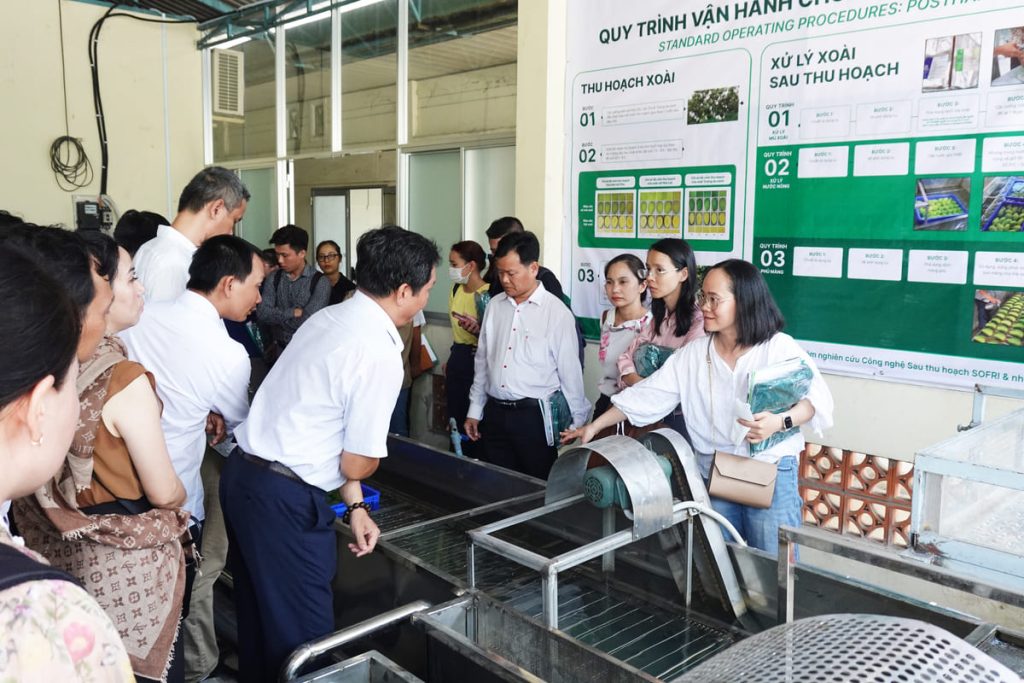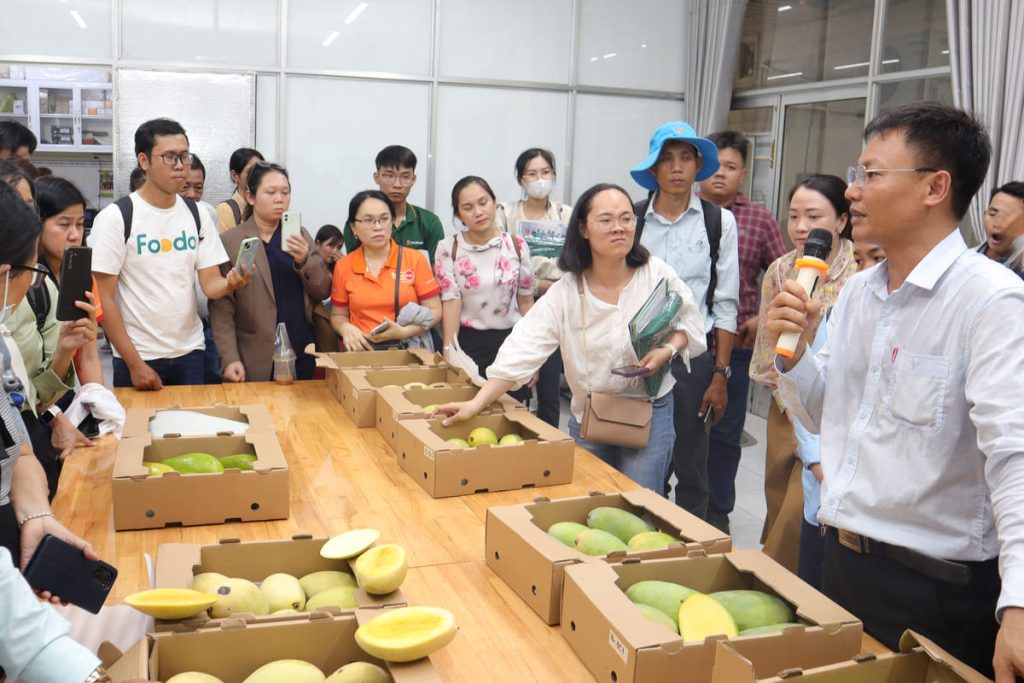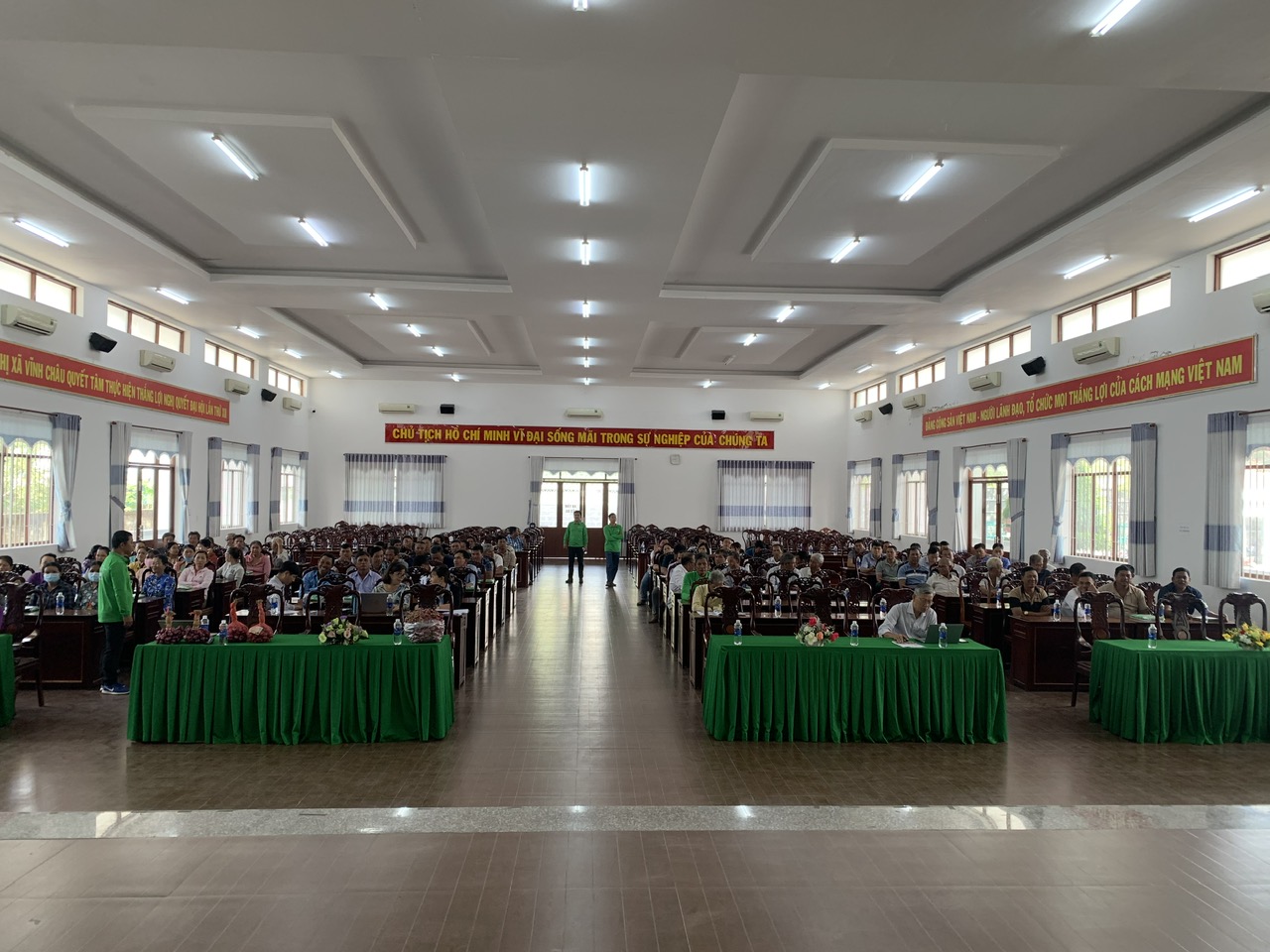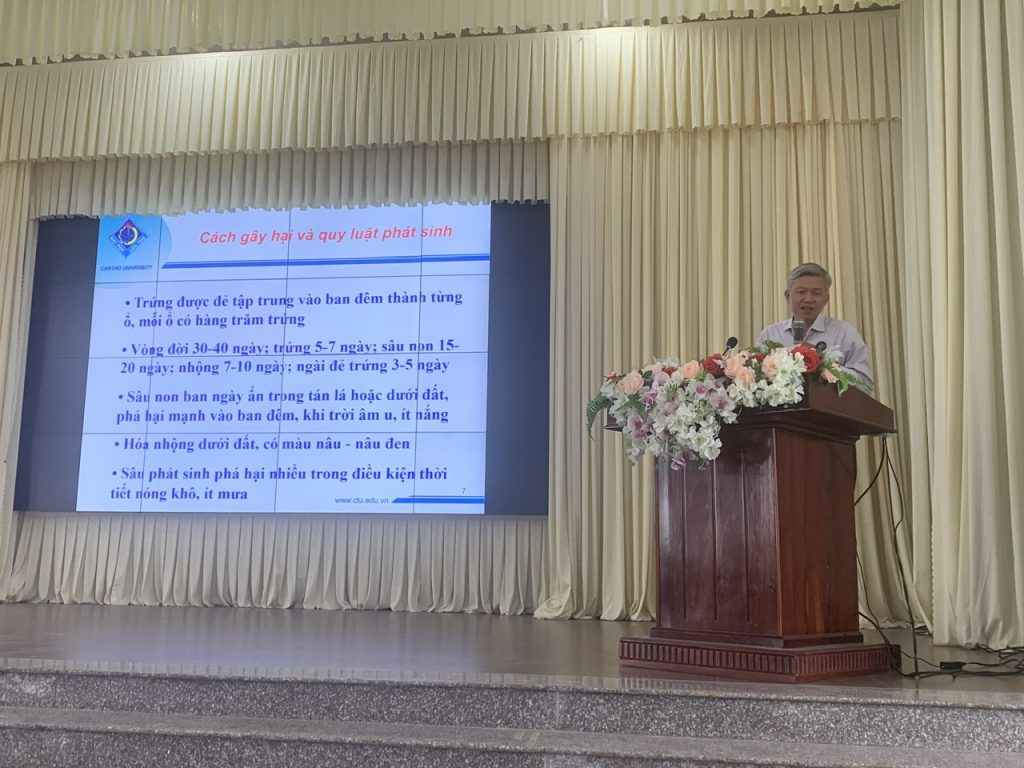To strengthen the value chain of mango production in the Mekong Delta, the ceremony for the inauguration of the Post Harvest Center for Vietnamese Fruit Sector and the training of Standard Operating Procedures (SOP) for mango varieties was held at the Southern Horticulture Research Institute (SOFRI). This event the establishment of the Post Harvest Center and SOP’s are part of the project: “Strengthening the mango value chain in the Mekong Delta” under the program Green Innovation Centers (GIC) for the agriculture and food sector (Vietnam country package).
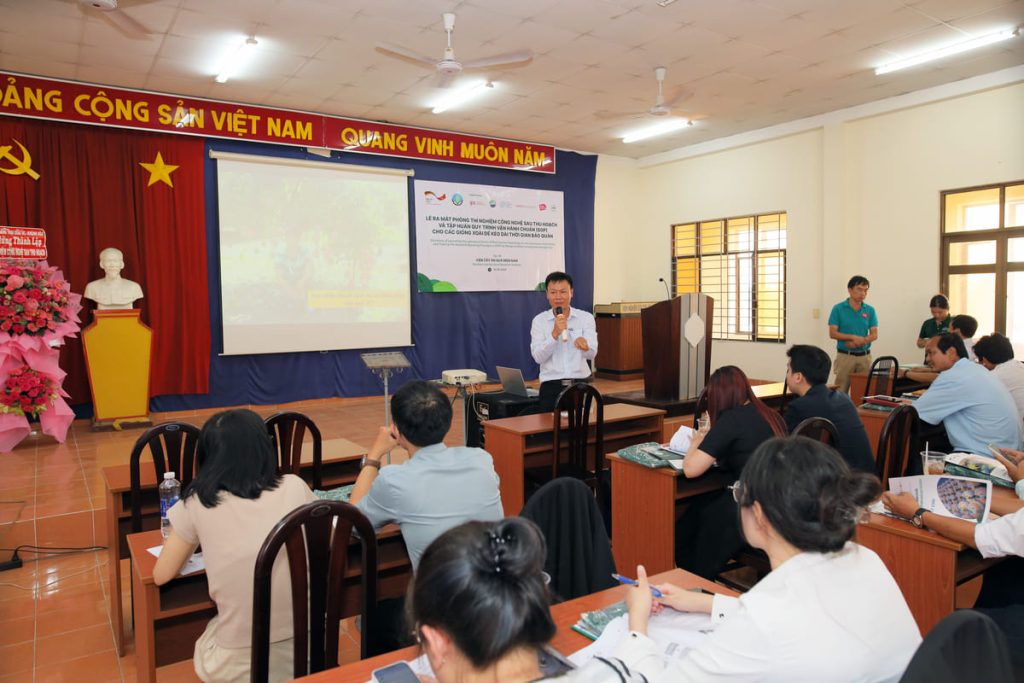
The Mekong Delta region of Vietnam is renowned for its fertile lands and favorable climate, ideal for the cultivation of a variety of fruits, with mangoes being one of the most prominent. However, despite the abundance of produce, challenges in post-harvest management and storage have often led to significant losses in quality and quantity, thereby impacting the livelihoods of farmers and the overall value chain.
Recognizing the need to address these challenges, Fresh Studio, in partnership with GIZ through the Green Innovation Center initiative, embarked on a project to strengthen the mango value chain in the region. The establishment of the Post Harvest Center for Vietnamese Fruit stands as a testament to their commitment to fostering innovation and sustainable practices within the agricultural sector.
At the heart of the ceremony was the training of Standard Operating Procedures tailored specifically for key mango varieties In Mekong delta such as Cat Hoa Loc mango, Cat Chu mango, Tuong Da Xanh mango and Keo mango, aimed at extending their storage life. This comprehensive training program equipped participants with the knowledge and skills, including the post-harvest issues such as sap burn on mango, anthracnose control and stem rot prevention and how to implement best practices in post-harvest handling, storage, and transportation.
Over 100 participants consisting of scientists, agricultural officers from the Plant Protection Department, companies active within the fruit sector , cooperatives and farmers, joined the event. The event featured insightful discussions, practical demonstrations, and hands-on training sessions, ensuring that participants gained practical insights that could be directly applied in their operations.
The collaboration between Fresh Studio,, GIZ, and SOFRI underscores the importance of public-private partnerships in driving sustainable development initiatives. By leveraging expertise, resources, and networks, these organizations have paved the way for transformative change within the agricultural landscape of the Mekong Delta.
The Post Harvest Center for Vietnamese Fruit serves as a hub for knowledge exchange, research, and innovation, empowering farmers and stakeholders with the tools and technologies needed to optimize post-harvest practices. Through initiatives like these, the potential for value addition, market access, and income generation within the agricultural sector is greatly enhanced, ultimately contributing to the socio-economic development of rural communities.
As the ceremony concluded, there was a palpable sense of optimism and determination amongst participants. Armed with newfound knowledge and skills, they departed with a renewed sense of purpose, ready to implement sustainable practices and drive positive change within their communities.
| The Green Innovation Centre Viet Nam is a country package of the Green Innovation Centres in the Agriculture and Food Sector (GIC) Program. This global program is funded by the German Federal Ministry for Economic Cooperation and Development (BMZ) within the framework of the special initiative ‘One world – No Hunger’. The GIC Viet Nam Project is jointly implemented by the Ministry of Agriculture and Rural Development (MARD) and GIZ. |

